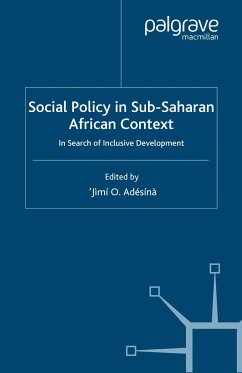
New Technologies in Developing Societies (eBook, PDF)
From Theory to Practice
Versandkostenfrei!
Sofort per Download lieferbar
40,95 €
inkl. MwSt.
Weitere Ausgaben:

PAYBACK Punkte
20 °P sammeln!
New technologies may have transformed human societies, but not much has been written on how they are impacting people in Africa and other developing regions, in terms of how they use technology to enhance their socioeconomic conditions in everyday life. This book critically examines these issues from theoretical, practical and policy perspectives.
Dieser Download kann aus rechtlichen Gründen nur mit Rechnungsadresse in A, B, BG, CY, CZ, D, DK, EW, E, FIN, F, GR, HR, H, IRL, I, LT, L, LR, M, NL, PL, P, R, S, SLO, SK ausgeliefert werden.












